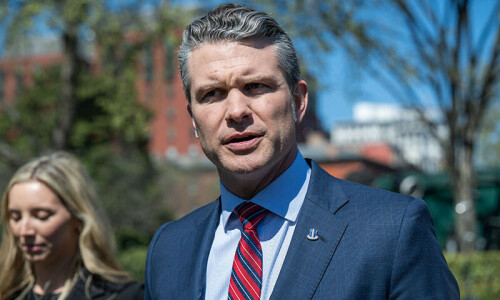It’s a struggle Pakistan may not win.
More children are born to Afghan refugees each year in Pakistan than those who are repatriated to Afghanistan. Even with no new refugees arriving from Afghanistan, the number of Afghan refugees in Pakistan will likely increase, owing to the net positive fertility rate of the Afghan refugees.
Over the last three decades, Pakistan has housed millions of Afghan refugees. The refugees, however, are not the only displaced cohort in Pakistan.
Also read: Beyond dharnas: The forgotten numbers of Waziristan
Natural disasters, militancy, and counterinsurgency has rendered even many more millions of Pakistanis homeless. Between the refugees and the internally displaced persons (IDPs), Pakistan is home to one of the world’s largest displaced populations.
The Pakistan government has set December 2015 as the deadline for repatriating millions of Afghan refugees. The continued uncertainty in Afghanistan, and the rollback of Nato troops, is forcing thousands more Afghans to seek refuge in Pakistan.
Also read: Afghan children toil in Pakistan
With over a million IDPs from North Waziristan and surrounding areas, 1.6 million legal and millions more illegal Afghan refugees, the odds are high for an unstable Pakistan, resulting partially from the population, refugee, and IDPs pressure.
While the refugee and IDP situation presents a sorry state of affairs in Pakistan, the rest of the world isn't doing much better either.
UN agencies are reporting that the number of displaced people, including refugees, reached an all-time high in 2013, second only to the displacement caused by the Second World War.
Wars in Syria, Iraq, Afghanistan and elsewhere accounted for 50-plus million refugees and IDPs in 2013.
No fewer than 34 million of the 51 million were internally displaced by wars. The remaining 17 million are refugees whose misfortunes followed them to the lands they escaped to, which were equally impoverished, such as Syria, Pakistan, and Lebanon.
Realising that the host countries did not have the means to cater to the influx of refugees, the UN asked for $16.9 billion in 2013. To date, only 30 per cent of the funds have been raised, leaving the burden to feed, clothe, and shelter millions of refugees on the reluctant host countries.
Explore: Pakistan, world's largest host of refugees: UNHCR
Since June, the Pakistan armed forces have been engaged in an armed conflict with militants holed up in North Waziristan and surrounding areas. The army’s spokesperson informed that to date, 910 militants and 82 members of the security forces have died in the conflict. Equally disturbing is the news that almost a million people have fled the conflict zones and have found refuge in camps established for the IDPs.
Just like the challenges in feeding, clothing, and sheltering Afghan refugees, caring for IDPs is no small feat. Hundreds of millions of dollars are needed to ensure that IDPs have meaningful lives while they are waiting to return to their homes.
Blessing in disguise?
Whereas the IDPs from North Waziristan and surrounding areas have posed great challenges for the State, at the same time their mass exodus from North Waziristan has been a blessing in disguise.
Of the approximately million IDPs, public health officials have been able to vaccinate 425,870 people at the transit camps established for them. This included 250,000 children under the age of five who were denied vaccination by the Taliban and their sympathisers.
Also read: Absence of vaccines shuts down polio centres
Few in Pakistan appreciated the potential for a global public health disaster resulting from the spread of the polio virus from Khyber Pakhtunkhwa (KP).
The Guardian newspaper reported earlier that North Waziristan was responsible for 50 per cent of the global polio cases. The WHO discovered that 90 per cent of the polio cases in Pakistan were genetically tied to KP. This made polio not just a local threat, but it made KP the “biggest threat to the global effort to stamp out a disease that can easily reinfect areas that have been cleared.”
Some Afghan refugees have been living in Pakistan for over three decades. In some cases, not only their children, but even their grand children were born in Pakistan. As the law stands today, the length of refugees’ stay in Pakistan does not bestow permanent residency status.
Given the chaos, turmoil, and violence in Afghanistan, it is unlikely that the situation there will improve in the near future. Even after several months, the two leading candidates in the Afghanistan’s presidential elections have failed to agree on the elections’ outcome. This has serious repercussions for Pakistan.
As a matter of fact, the refugee count in Pakistan is likely to swell further. According to the UN’s refugee agency, in 2013, Pakistan was already home to the world’s largest refugee population. Add to this millions of undocumented Afghan refugees and the IDPs, and the challenges, just like the underlying demographics, multiply.
Pakistan desperately needs political and economic stability to deal with the astronomical challenges posed by the tsunami of refugees and IDPs. The long and short marches for freedom and revolution, which have paralysed the State and the society since mid-August, are prolonging chaos in Pakistan.
















































